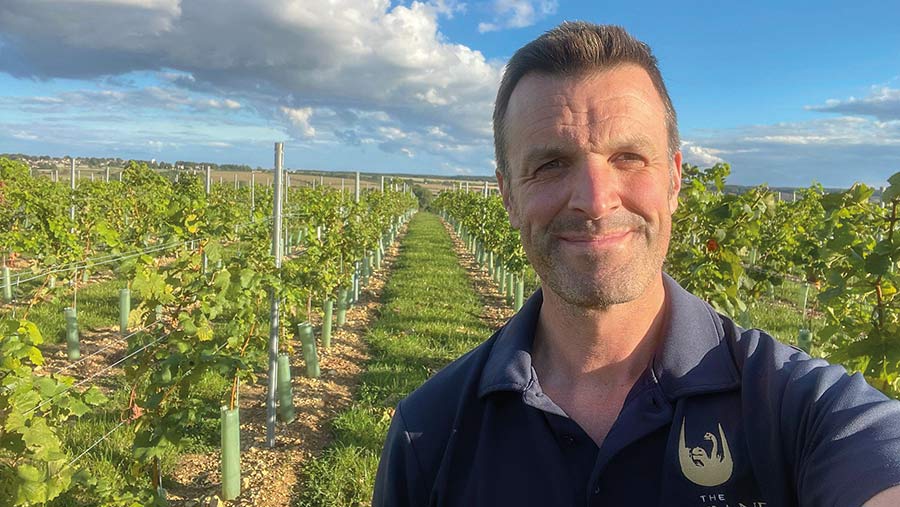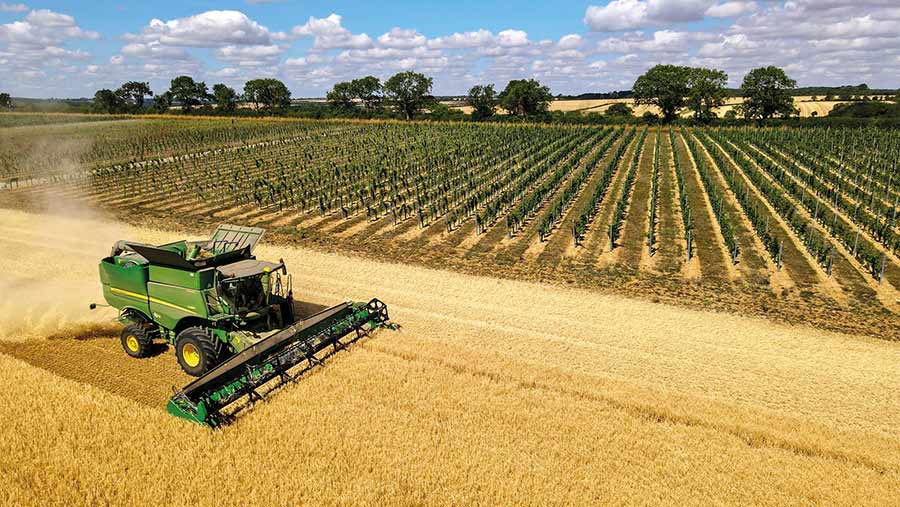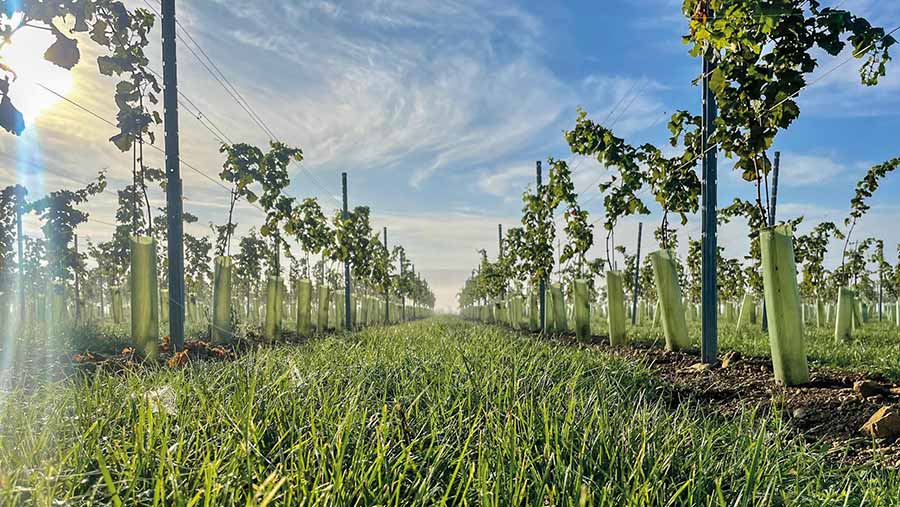From malting barley to pinot noir – a farm’s diversification
 © Tim Beaver
© Tim Beaver A 550ha arable farm in Rutland, looking to expand the operation, decided to diversify into a rather surprising area – wine production.
They now have a seven-acre vineyard at Ketton with 13,000 vines, including the varieties pinot noir, ortega and pinot meunier, which were selected to suit the area’s Jurassic limestone soils and relatively cool climate.
The first grapes will be harvested next October, with wine available from The Rutland Vineyard in May 2024 – and the ultimate aim of producing 15,000 bottles a year.
See also: FW Awards 2020 – Little Wold Vineyard, East Yorkshire
Tim Beaver who runs the family’s farm says, “I have no experience growing grapes – I’m a malting barley boy at heart.
“But we considered either trying to get more land and more kit to expand the farm or doing something completely different – and this was what we came up with.”
The farm represented an ideal venue for a vineyard – it’s 70m above sea level, south-facing, free-draining and the soil has a high calcium content.
“We’re just hoping there’ll be enough airflow to push the frost down the valley,” Tim says.

© Tim Beaver
Wine tours
The plan is to produce a mixture of sparkling and still whites and reds, with the flavours akin to those produced in Burgundy.
“I love farming, but there are limited opportunities to engage with the public, which I really enjoy, so this felt like a good way to do that – both in terms of dealing direct with customers and through visits.”
The family has created a free-to-use 1km nature trail around the vineyard. There are beehives, owl boxes and wildflowers, plus hedgehogs and hares.
They’ve also planted white poplar trees to act as a windbreak for the vineyard, and a nature “pathway” through it for wildlife.
“Historically, we’ve always been environmentally focused – we’re in Countryside Stewardship and, previously, 10 years of ELS,” says Tim.
Turning a “rickety old barn on the top of a hill in the middle of nowhere” into a small tasting venue was a “big hit” financially, but Tim and his wife, Zoe, are viewing it as a long-term investment.
“We can see climate change is happening and also how we’re being let down by government in terms of trade deals and cheap food, so we wanted to find a new enterprise.
“Also, you can miss a lot of your kids growing up when you’re out on the farm. This is a place where our family can be together.”
As the children have become older (Isabel is nine and Maisie is seven), Zoe realised she’d have more time to potentially put into an enterprise such as this.
The offering will be uncomplicated – coffee, cake and wine. Maybe a cheeseboard in the winter. “We’ll keep it simple and do it well,” says Tim. “We want it to be a place for the local community to visit and come together.
“Coincidentally, a Master of Wine, John Atkinson, lives locally so he helps with tours. We want to welcome families and small groups. There won’t be any wine snobbery here!”

© Tim Beaver
The plan is to send the grapes off for processing after harvest, because winemaking is a whole different skill set.
The wine will then be sold direct, mostly via the website, with the vineyard’s logo of a wine glass and dinosaurs – a nod to the many fossils found in the area which, 160 million years ago, was England’s south coast.
“Financially, we want the enterprise to wipe its face one day, but we wanted the challenge and the satisfaction of starting a new enterprise from the ground up. We don’t want to take shortcuts – because you only get a chance to do this once.
“Although the farm is tenanted, we own the vineyard, so we’re viewing this as a 30-year investment.
What is the ideal grape-growing soil
There are potentially suitable spots for vineyards across much of southern England and the Midlands, but it’s important to find a perfect piece of land if your enterprise is to start on the right footing, says Matthew Berryman, a farm business and viticulture consultant at CLM.
The ideal location is on chalky, free-draining ground, south-facing and less than 100m above sea level.
With the best bare land suitable for planting vines changing hands at more than £62,000/ha (£25,000/acre), would-be buyers should also consider access, local planning policy and precedent, along with “picturesequeness”, especially if visitors or tourism are in the plan.
“Growing grapes is very specialist, but farmers have a lot of transferable skills and the English wine industry is very much in the ascendancy as the climate changes and our grape-growing and winemaking skills improve,” says Matthew.
“With English wines now going head-to-head on quality with those produced in France, this could be an exciting diversification for some.”
